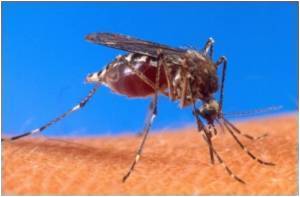A new study says that preventative treatment antibiotics in people living in areas with intense malaria transmission has the potential to act as a 'needle-free' natural vaccine against malaria.

The team showed that the antibiotics caused a cellular defect in malaria parasites during their passage into the liver of the infected host.
This action did not prevent parasite replication in the liver but blocked the malaria parasite's fatal conversion to the disease causing blood stage.
The very late arrest of parasites in the liver allowed the immune system to mount a robust defence against subsequent infections, akin to experimental whole organism vaccine strategies using attenuated parasites.
The idea is to take advantage of the immunological benefit of antibiotic prophylaxis in areas of moderate to high malaria transmission.
An important follow-up of this work is the validation of our experimental approach by clinical trials in humans.
Advertisement
The study is published in the journal Science Translation Medicine.
Advertisement













